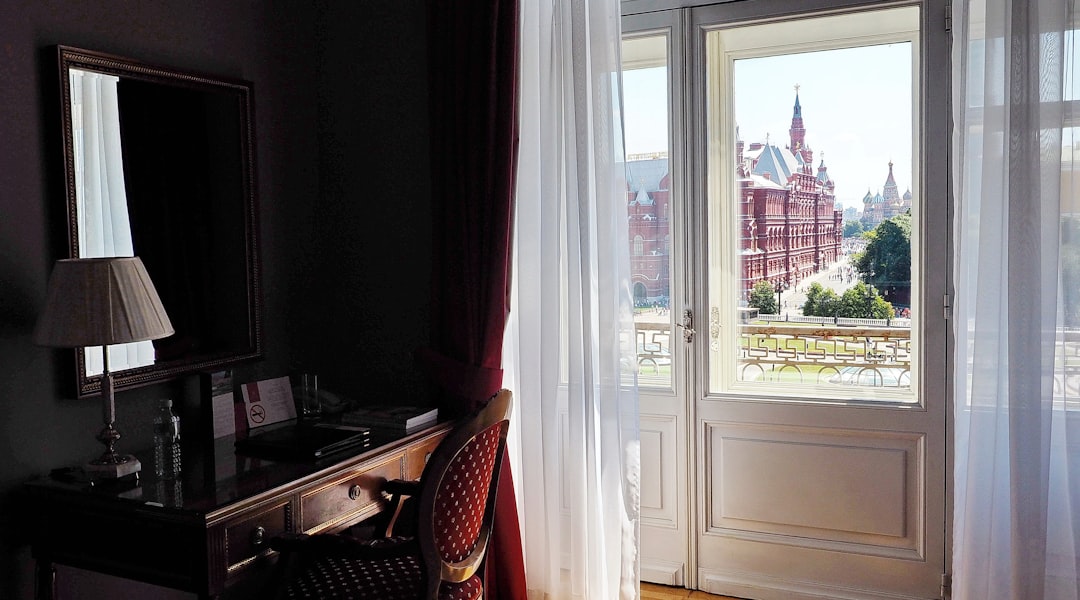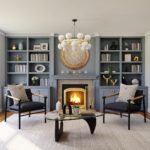Support our educational content for free when you purchase through links on our site. Learn more
Furnish & Decorate Your Home: 15+ Expert Tips ✨
Have you ever walked into a home and felt instantly at ease, surrounded by a sense of calm and style? It’s not magic; it’s thoughtful design! This comprehensive guide will walk you through every step of furnishing and decorating your home, from defining your style and choosing a color palette to selecting furniture and accessorizing your space. We’ll even share some budget-friendly DIY projects to unleash your inner artist! Remember that measuring twice and buying once is key – a mistake we learned the hard way on our first decorating project! Ready to transform your house into a home you adore? Let’s get started!
Key Takeaways
- Plan your style and color palette: Define your aesthetic and choose colors that reflect your personality and create the desired mood. Explore different styles like modern, traditional, bohemian, or farmhouse to find your perfect match.
- Prioritize essential furniture: Focus on key pieces for each room before adding accessories. Start with a sofa and coffee table for the living room, a bed and nightstands for the bedroom, and a dining table and chairs for the dining area.
- Layer textiles and accessories: Add rugs, curtains, throw pillows, and artwork to add texture, warmth, and personality to your space. Don’t be afraid to experiment with different patterns and textures!
- Consider lighting: Use a mix of ambient, task, and accent lighting to create a layered and inviting atmosphere.
- DIY for savings: Unleash your creativity and save money with DIY decor projects. Check out our DIY Decor Projects category for inspiration!
- 👉 Shop smart: Compare prices and look for sales and discounts. Consider brands like IKEA, West Elm, CB2, and Pottery Barn. You can find these brands on major online retailers like Amazon and Walmart.
👉 Shop Furniture & Decor:
- IKEA: IKEA Official Website | IKEA on Amazon | IKEA on Walmart
- West Elm: West Elm Official Website | West Elm on Amazon
Table of Contents
A Brief History of Interior Design and Home Furnishing
Planning Your Home’s Style: Defining Your Aesthetic
Choosing a Color Palette That Pops (and Doesn’t Give You a Headache)
Top 10 Tips for Furnishing a New Home Like a Pro
Essential Furniture Pieces for Every Room: A Room-by-Room Guide
The Ultimate Guide to Textiles and Fabrics: Choosing the Right Textures for Your Home
Accessorizing Your Space: The Secret to Adding Personality and Flair
Lighting Design: Illuminating Your Home’s Ambiance
DIY Decor Projects: Unleash Your Inner Artist and Save Money!
Budgeting for Your Home Makeover: Smart Strategies for Staying on Track
Finding the Perfect Balance: Form, Function, and Style in Your Home
The Bottom Line: Furnishing Your Home to Reflect Your Unique Style
Quick Tips and Facts 🤔
Before you dive into the exciting world of home furnishing and decoration, let’s get you started with some quick wins! Transform your space with these budget-friendly tips! Check out our related article on Transform Your Space: 15 Budget-Friendly Tips to Decorate Your New Home ✨ 2025.
- Measure twice, buy once! Seriously, this is the golden rule. Incorrect measurements lead to expensive mistakes. 📏
- Start with a plan: Even a rough sketch helps you visualize the space and avoid impulse buys. 📝
- Prioritize functionality: Beautiful is great, but is it useful? Think about how you’ll actually use each room. 🤔
- Mix high and low: Splurge on key pieces (like a statement sofa) and save on accessories. 💰
- Don’t be afraid of color: But start with a neutral base and add pops of color strategically. 🎨
- Layer your lighting: Ambient, task, and accent lighting create a warm and inviting atmosphere.💡
- Personalize your space: Add items that reflect your personality and hobbies. This is your home! 🖼️
- Less is more: Clutter can make a space feel cramped and overwhelming. Declutter regularly! ✨
A Brief History of Interior Design and Home Furnishing 🕰️

Believe it or not, interior design has a rich history! From ancient Egyptian palaces to Victorian-era mansions, the way we furnish and decorate our homes has evolved dramatically. Early forms of interior design focused on functionality and practicality, using readily available materials. The rise of global trade introduced new materials and styles, influencing design trends across cultures. The 20th century saw the emergence of modernism and minimalism, emphasizing clean lines and functionality. Today, interior design is a diverse field, blending historical styles with contemporary trends. Learn more about the fascinating evolution of interior design styles here.
Planning Your Home’s Style: Defining Your Aesthetic ✨
Before you even think about shopping, define your style! What vibe are you going for?
Defining Your Style
- Modern: Clean lines, minimalist decor, neutral color palettes.
- Traditional: Classic furniture, ornate details, rich fabrics.
- Bohemian: Eclectic mix of patterns, textures, and global influences.
- Farmhouse: Rustic charm, natural materials, vintage accents.
- Mid-Century Modern: Simple lines, organic shapes, pops of color.
- Minimalist: Clean lines, uncluttered spaces, functional furniture.
- Scandinavian: Light and airy spaces, natural materials, simple designs.
Browse through magazines, Pinterest, and Instagram for inspiration. Create a mood board to collect images and ideas that resonate with you. Remember, your style should reflect your personality and lifestyle!
Choosing a Color Palette That Pops (and Doesn’t Give You a Headache) 🌈
Color is crucial! It sets the mood and can dramatically impact the feel of a room.
Choosing Your Colors
- Consider the light: North-facing rooms tend to be cooler, while south-facing rooms are warmer. Choose colors accordingly.
- Start with a neutral base: This provides a versatile backdrop for pops of color. Think beige, gray, or off-white.
- Use the 60-30-10 rule: 60% dominant color, 30% secondary color, 10% accent color.
- Create a color scheme: Complementary, analogous, or triadic color schemes can create visually appealing combinations.
- Test your colors: Paint swatches on the walls before committing to a whole room. See how they look in different lighting conditions.
Remember, you can always add pops of color with accessories like throw pillows, rugs, and artwork!
Top 10 Tips for Furnishing a New Home Like a Pro 🏆
Furnishing a new home can feel overwhelming. Here are ten expert tips to make the process smoother:
- Create a budget: Set a realistic budget and stick to it!
- Measure your spaces: Avoid buying furniture that’s too big or too small.
- Prioritize essential furniture: Focus on key pieces for each room first.
- Choose a style: Select a style that reflects your personality.
- Consider the flow: Ensure furniture placement allows for easy movement.
- Layer your textiles: Add rugs, curtains, and throw pillows for texture and warmth.
- Incorporate lighting: Use a mix of ambient, task, and accent lighting.
- Add personal touches: Display items that reflect your interests and hobbies.
- Don’t rush the process: Take your time and enjoy the journey!
- Seek professional help: Consider hiring an interior designer for personalized guidance.
Essential Furniture Pieces for Every Room: A Room-by-Room Guide 🛋️
Let’s break down the essentials for each room:
Living Room
- Sofa
- Coffee table
- Armchairs (optional)
- Media console
- Rug
Dining Room
- Dining table
- Dining chairs
- Sideboard (optional)
Bedroom
- Bed
- Nightstands
- Dresser (optional)
- Wardrobe (optional)
Kitchen
- Dining table and chairs (if space allows)
- Island (optional)
Remember, these are just the basics. You can customize your furniture choices based on your needs and preferences.
The Ultimate Guide to Textiles and Fabrics: Choosing the Right Textures for Your Home 🧵
Textiles add warmth, personality, and visual interest to your home. Consider these factors:
- Durability: Choose durable fabrics for high-traffic areas.
- Maintenance: Select fabrics that are easy to clean and maintain.
- Style: Match the fabric to your overall design style.
- Texture: Mix and match textures for visual interest.
Consider using a variety of textiles, such as cotton, linen, wool, silk, and velvet, to add depth and dimension to your space.
Accessorizing Your Space: The Secret to Adding Personality and Flair ✨
Accessories are the finishing touches that bring your home to life! Think:
- Artwork: Paintings, prints, photographs.
- Throws and pillows: Add texture, color, and warmth.
- Rugs: Define spaces and add comfort.
- Plants: Bring life and freshness to your home.
- Candles and diffusers: Create a relaxing atmosphere.
- Books and magazines: Add personality and visual interest.
Don’t be afraid to experiment and have fun with it!
Lighting Design: Illuminating Your Home’s Ambiance 💡
Lighting is often overlooked, but it’s crucial for creating the right atmosphere. Consider these types of lighting:
- Ambient lighting: Provides overall illumination.
- Task lighting: Illuminates specific areas for tasks like reading or cooking.
- Accent lighting: Highlights architectural features or artwork.
Use a mix of lighting types to create a layered and inviting atmosphere. Experiment with different light fixtures and bulbs to find the perfect balance.
DIY Decor Projects: Unleash Your Inner Artist and Save Money! 🛠️
DIY projects are a fantastic way to personalize your space and save money. Check out our DIY Decor Projects category for inspiration! We have tons of ideas, from painting furniture to creating unique wall art.
Budgeting for Your Home Makeover: Smart Strategies for Staying on Track 💰
Creating a budget is essential for any home makeover. Consider these strategies:
- Set a realistic budget: Don’t overspend!
- Prioritize your needs: Focus on essential items first.
- 👉 Shop around: Compare prices from different retailers.
- Consider DIY projects: Save money by doing some projects yourself.
- Use coupons and discounts: Take advantage of sales and promotions.
- Stagger your purchases: Spread out your spending over time.
Remember, a successful home makeover is about creating a space you love, not breaking the bank!
Finding the Perfect Balance: Form, Function, and Style in Your Home ⚖️
The key to a successful home makeover is finding the perfect balance between form, function, and style. Your home should be both beautiful and practical. Don’t sacrifice functionality for aesthetics, and vice versa. Strive for a harmonious blend of all three elements to create a space that is both stylish and comfortable.
The Bottom Line: Furnishing Your Home to Reflect Your Unique Style 🏠
Furnishing and decorating your home is a deeply personal journey. It’s about creating a space that reflects your personality, style, and lifestyle. Don’t be afraid to experiment, have fun, and make it your own! Remember to start with a plan, prioritize functionality, and don’t be afraid to ask for help. We’re here to guide you every step of the way!
About Our Affiliates
At Home Decorations™, we partner with select retailers to bring you the best products and services. We only recommend products and services that we believe in. Our affiliate relationships allow us to continue providing valuable content to our readers.
Conclusion 🎉

So there you have it – a comprehensive guide to furnishing and decorating your home! We hope this has inspired you and equipped you with the knowledge and confidence to create a space you truly love. Remember, it’s a journey, not a race. Take your time, enjoy the process, and don’t be afraid to experiment. Your home should be a reflection of your unique personality and style. And if you ever get stuck, remember we’re here to help!
Recommended Links 🛍️
Here are some resources to help you get started on your home furnishing and decorating journey:
👉 Shop for Furniture & Decor:
- IKEA: IKEA Official Website | IKEA on Amazon | IKEA on Walmart
- West Elm: West Elm Official Website | West Elm on Amazon
- CB2: CB2 Official Website | CB2 on Amazon
- Pottery Barn: Pottery Barn Official Website | Pottery Barn on Amazon
Recommended Books on Amazon:
FAQ ❓

What are the essential furniture pieces for a first-time homeowner to buy?
Prioritizing Essentials
For first-time homeowners, focus on functionality and comfort. Prioritize these essentials:
- Bedroom: A comfortable bed, nightstands, and a dresser (if needed).
- Living Room: A sofa, coffee table, and possibly a media console.
- Kitchen/Dining Area: A dining table and chairs (if space allows).
Avoid unnecessary purchases initially. You can always add more furniture as your needs and budget allow.
How can I determine my personal decorating style for my home?
Discovering Your Style
Explore different styles (modern, traditional, bohemian, etc.) using online resources like Pinterest and magazines. Consider what colors, textures, and patterns appeal to you. Gather images that resonate with you and identify common themes. Your personal style should reflect your personality and lifestyle.
Read more about “Transform Your Space: 15 Budget-Friendly Tips to Decorate Your New Home 🏡 …”
What are the best ways to decorate a small living space on a budget?
Maximizing Small Spaces on a Budget
Small spaces require clever solutions:
- Multifunctional furniture: Choose pieces that serve multiple purposes (e.g., a sofa bed).
- Light colors: Light colors make spaces feel larger.
- Mirrors: Mirrors reflect light and create an illusion of more space.
- Minimalist decor: Avoid clutter and keep the space uncluttered.
- Vertical storage: Use vertical space for storage to free up floor space.
- DIY projects: Create affordable decor items yourself.
Read more about “How to Decorate on a Low Budget: 50 Genius Hacks for 2025! 🎨💸”
How do I choose a color scheme for my home’s interior?
Choosing a Harmonious Color Scheme
Consider the following:
- Mood: Different colors evoke different moods (e.g., calming blues, energizing yellows).
- Lighting: Natural light affects how colors appear.
- Existing elements: Consider the existing colors in your home (flooring, countertops).
- Color wheel: Use the color wheel to create harmonious combinations (complementary, analogous, triadic).
- Test colors: Paint swatches on the walls before committing to a whole room.
Read more about “How to Transform Your Home with 20 Creative DIY Decor Ideas 🛠️ …”
What are some popular home decor trends that I should consider?
Exploring Current Trends
Current trends include:
- Biophilic design: Incorporating natural elements (plants, wood).
- Japandi: A blend of Japanese and Scandinavian styles.
- Maximalism: Embracing bold colors, patterns, and textures.
- Sustainable materials: Using eco-friendly materials.
- Smart home technology: Integrating technology into your home decor.
How can I add texture and pattern to my home’s decor without overwhelming the space?
Adding Texture and Pattern Strategically
Introduce texture and pattern gradually:
- Layering: Use different textures in layers (e.g., a textured rug, a plush throw blanket).
- Focal points: Use pattern in specific areas (e.g., a patterned rug, a patterned throw pillow).
- Neutral base: Start with a neutral base and add pops of pattern and texture.
- Scale: Consider the scale of the patterns (large patterns for large spaces, small patterns for small spaces).
- Repetition: Repeat patterns and textures throughout the space for cohesion.
What are some tips for mixing and matching different furniture styles in my home?
Harmoniously Mixing Furniture Styles
Mixing styles can create a unique and eclectic look:
- Common thread: Choose a common thread (e.g., color, material) to tie different styles together.
- Scale and proportion: Consider the scale and proportion of furniture pieces.
- Neutral base: Use neutral colors as a backdrop for different styles.
- Focal point: Create a focal point with a statement piece.
- Balance: Balance different styles by using similar elements in different areas.
Reference Links 📚
- Metropolitan Museum of Art: History of Interior Design
- IKEA: IKEA Official Website
- West Elm: West Elm Official Website
- CB2: CB2 Official Website
- Pottery Barn: Pottery Barn Official Website
- HomeByMe: Free 3D design software: HomeByMe




